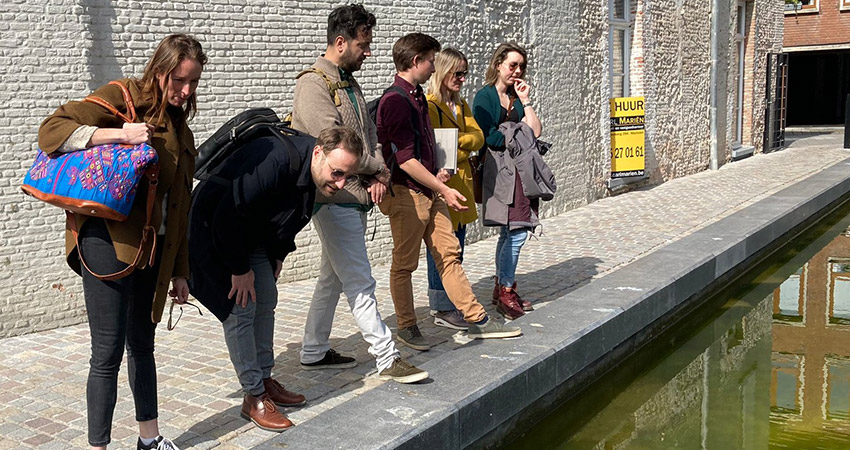European Junior Water Programme set to launch 4th group
-
 Press Release
Press Release
Share article:
Water and environmental research organizations in Europe are preparing to collaborate again to build networks and sector capacities, as the European Junior Water Programme (EJWP) embarks on its fourth group journey beginning 16 May. Note that limited places are available, and 6 May is the registration deadline for water sector organizations and their early-career professionals that are interested in joining EJWP4.
So far in 2022, EJWP participants from around Europe have gathered for training weeks hosted by partner organizations which sponsor their staff in the programme to develop skills in leadership and communication strategies. These training weeks typically contain collaborative water-related project research and presentations, development coaching, interaction with staff of the host organization, and nature-cultural expeditions.

In mid-March, EJWP2 travelled from their home countries to Colmar, France, to meet at ACTeon Environment, a French consulting and research company focused on environmental strategies and policies. EJWP3 met up in Mechelen, Belgium, at Natuurpunt, an NGO that protects and manages natural areas around Flanders. And in 2021, EJWP1 concluded its two-year course with a final training week in Hardanger, Norway, with Aqua ALARM, a company specializing in microbial water quality monitoring and management in water networks.
“It’s motivating for me and my work colleagues who follow my journey in EJWP. It brings energy into the life at my company, so it’s a great added value. And even though we already work at the EU level, our activities with Water Europe help lead to new collaboration opportunities, ideas, and perspectives,” said Manon Berge, EJWP2 participant with ACTeon Environment in France. EJWP is also becoming increasingly visible in the European water sector through its participation in events with Water Europe and partner organizations from around Europe. EJWP participant groups are comprised of staff from research institutions, government agencies, water utilities, environmental organizations and related institutions. These participants often play coordinating or presentation roles in conferences and in EU-funded project meetings for related initiatives.











